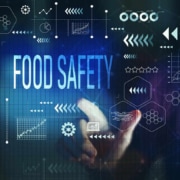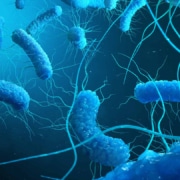Development of a Research Framework for Evidence-Based Assessment of Potential Carcinogens in Human Diets
Risk assessment of chemicals that are potentially carcinogenic in humans often relies on extrapolation from carcinogenicity bioassays. There is a growing belief in the scientific community that evidence-based risk assessment can replace historical, over-protective guidance-based approaches. However, there is no consensus within the scientific community on an approach or framework for the application of an evidence-based risk assessment. This project will develop such an approach by, first, categorizing potential exposure and mode of action scenarios leading to a carcinogenic response, followed by development of a framework based on sectoral examples such as hepatically activated electrophiles that are potential genotoxic carcinogens.
Institution: Cardno ChemRisk
Principal Investigator: Andrew Maier, PhD, DABT
Year Awarded: 2020
This project is supported by the IAFNS Food and Chemical Safety Committee.
Updating the Metal Dietary Exposure Screening Tool
The IAFNS Food and Chemical Safety Committee invests in the training and education of future scientists and leaders in the fields of food and chemical safety and food toxicology by supporting a Summer Fellowship Program for doctoral students. This project focuses on updating the Metal Dietary Exposure Screening Tool.
Detection of heavy metals at trace levels in foods and food ingredients is common given the unavoidable presence of metals in nature coupled with advancement in analytical methods and lower detection limits. In 2015, the Heavy Metal Subcommittee of the IAFNS Food and Chemical Safety Committee sponsored the development of a Metal Dietary Exposure Screening Tool and publication of the paper titled “Partitioning of Dietary Metal Intake—A Metal Dietary Exposure Screening Tool”. The tool provides a screening-level approach that serves as a first step in a tiered risk assessment process to evaluate potential public health risks when confronted with the detection of select heavy metals in foods and food ingredients. IAFNS and the Joint Institute for Food Safety and Applied Nutrition (JIFSAN) have agreed to collaborate on the continued development and biennial updating of the Metal Dietary Exposure Screening tool.
Institution: University of Rochester
Summer Fellow: Candace Wong, PhD Candidate
Year Awarded: 2019
Access the Metal Dietary Exposure Screening Tool.
Read more: Review of Regulatory Reference Values and Background Levels for Heavy Metals in the Human Diet
Learn more about the IAFNS Food and Chemical Safety Committee.
Sampling of Post-Hurricane Florence Floodwater for Human Foodborne Pathogens
Heavy rainfall and flooding following a hurricane can massively impact water quality, especially via runoff from agricultural and industrial operations. The IAFNS Food Microbiology Committee is supporting researchers at North Carolina State University to examine the emergence, potential routes of contamination and proliferation, as well as virulence and susceptibility of three major foodborne pathogens in the freshwater supply following Hurricane Florence: Salmonella, Listeria and Campylobacter.
These findings will be integrated with geospatial analysis and land use information. The choice of these pathogens was dictated by the significant threats that they pose to food safety and public health and their known capacity to survive and persist in fresh water. The data will provide assessments of pathogen prevalence during and post-flooding, as well as estimates of the time periods required for return to baseline levels. The learnings from this study will also support mitigation and control of pathogens in future food systems.
Institution: North Carolina State University
Principal Investigator: Sophia Kathariou, PhD
Year Awarded: 2018
Learn more about the IAFNS Food Microbiology Committee.
Key Findings and Implications of a Recent Systematic Review of the Potential Adverse Effects of Caffeine Consumption in Healthy Adults, Pregnant Women, Adolescents, and Children
Scientific findings lose their value if they cannot be easily translated for comprehension by diverse audiences. The Institute of Medicine (IOM) also recognizes this fact, and their guidance related to systematic reviews suggests that plain language summaries can improve the work’s usability for general audiences (IOM, 2009). Thus, the aim of this paper is to provide a plain-language summary of this important review, and the reader is referred to the original work for full references. This summary paper will help the findings be more understandable and allow individuals to make educated decisions regarding their (or their patients') intake of this commonly consumed ingredient- caffeine.
Institution: ToxStrategies, Inc.
Principal Investigator: Candace Doepker, PhD
Year Awarded: 2018
Read the Key Findings and Implications of a Recent Systematic Review.
View the Systematic Review of the Health Effects Associated with Consumption of Caffeine in Humans.
Learn more about the IAFNS Caffeine Committee.





